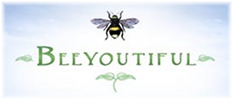On finding home, and unwrapping a past life
January 20, 2014 in North America, Travelogue, United States
The only sound is the water rushing in the creek below my window.
Occasionally a moo from one of the cows in the barn. During daylight hours, the chickens clucking and rustling in the warmth of their bedding. The snow muffles everything. A grey, winter sun is yawning towards the horizon and the house is very, very quiet.
The children, out late playing with some of their best friends, are still abed. The Man is rolled up in the blankets with only his sleeping hat sticking out. I hear my friend rustle his covers on the futon in the other room occasionally. We are tired, and we are home.
“Home,” in this incarnation, is a New Hampshire farm house built in the 1790’s. It’s post and beam, of course, two story with an attached barn, common in New England, where winters were harsh and all of the heat was needed, even from the animals. It was remodeled in the 1810’s and electricity was added later, when it became available. Ellen tells me part of the original wiring was still in use when they bought the house, forty years ago.
We are, at the very definition of, “In the middle of nowhere.” It’s perfect. Joe and Ellen own several acres, dedicated to cows and chickens, bees and gardens that backs up to countless acres of conservation land along the Blackwater River. They live a postcard life, and we’re feeling very privileged to share it with them for a few months.
We have the top half of the old house, a huge kitchen, oversized washroom, two bedrooms and an ample living room. Hannah has made herself a chick-cave out of a big L shaped closet between two rooms. She’s even got the silk hammock we picked up in Bali strung diagonally above her mattress.

It’s a strange thing to unwrap a past life.
For the first time in six years we opened some of the boxes that we’d put into storage when we set out for our one year journey in 2008. Clearly, we packed under the assumption that we’d be right back. We’ve giggled at clothing we saved, toys that have been outgrown and elf sized ski boots set next to giant sized boy feet.
The past six years, our journey, has been about making do with what we have; which often means less. Sometimes lots less. We’ve cooked for crowds on camp stoves, in rounds. We’ve given BYO-Plate dinner parties laid out on green tarps on the ground. We’ve tucked dozens and dozens of backpackers in around the margins, on couches and floors, in hammocks and corners. There’s always room for one more.
Unpacking, I discovered something: Our life has always been about including others, and we do it, no matter what we have at hand.
What makes it easy when all we have is a camp camp stove and a tarp is the habit, well worn, for generations in our family.
I laughed as I opened boxes:
- I own margarita glasses. I completely forgot about those.
- I have tea service for twenty, that matches!
- I have a serious issue with cloth napkins: not less than ten sets of twelve.
Things that went straight back into boxes:
- The 28” silver candelabra
- My grandmothers set of cordial glasses
- The tea service
- The parfait glasses
- Half of the wine glasses
- Everything crystal
The first thing I did? Have friends to dinner two nights in a row and open the doors to a house guest.
For us, travel, being home, and life itself is about the people we share it with.
Perhaps, one day, I’ll have the privilege of inviting you to dinner, at my table that seats 12, and we’ll lay out salad and dessert forks properly. If not, then we can happily make do with foldable plastic dish wear pulled out of a bike pannier or backpack, cross legged on the ground.
Pulling all of my lovely things out of storage has been fun. I saved them because they were important to me in some capacity, and they still are. Of course I don’t “need” them, I didn’t ever need them, really. But they are things we enjoy and, I realized, tools that I use to include others. I enjoy welcoming people, feeding people, creating a little oasis of quiet and beauty when it’s needed. I believe in the idea that hospitality is what builds community and community is what builds healthy people and strong children. I love being the person known for inviting the people who never get invited, because they have too many kids, to dinner. I love having the comfortable capacity to have a revolving door for house guests and a table big enough to sit around while the history of the world unfolds. To me, cloth napkins, wine glasses, a cast iron pot to bake bread in and dinner service for a crowd are tools toward the work of people and community building. I intend to give them a work out for the next few months, while I have them.
Light has crept quietly across the alfalfa field while I’ve been writing this. The Man has turned face up and is looking like he might be almost ready to open his eyes. Lee, one of my oldest friends, just scrambled to shut off the alarm that broke the silence. A dog is barking on a neighbouring farm. There is still no sign of life from the children. Today we’re going to make a solid attempt at establishing normal. The boys will be rolled out to feed cows and chickens and shovel the stalls. Work and school will be returned to. I will bake something, and perhaps take a walk with my friend.
Once again, we find ourselves home.


 RSS - Posts
RSS - Posts


























As much as I like to think of myself as a laid back labrador I also have a bit of border collie in me. I need to get better at letting go and accepting help. Last saturday I invited 25 people over to roast hot dogs. Yes, in winter in WI. I’m never good at timing things so didn’t have all the salad stuff ready when people arrived so it was more stressful than fun at first because I was trying to get everything ready instead of just handing people knives and cutting boards and putting them to work.
Your post months ago about a bon voyage gathering for your family and other posts since have made me realize how much more I need to invest in building community as I’ve been so wrapped up with work and kids and stuff. I agree with you that “hospitality is what builds community and community is what builds healthy people and strong children. ” Goodness knows I want my family to be strong and healthy. I am trying to say yes more often. I know this is second nature to you but I will have to try to find a way to reach out and connect with others more, especially while we are on the road. Thanks for the reminder of why it is important to make the effort.
Thanks for sharing Kim! Good for you, having the intention and making the effort. It’s a process, changing those old patterns is a life long journey. Your story encourages me, I’m so glad something I write resonates with you.